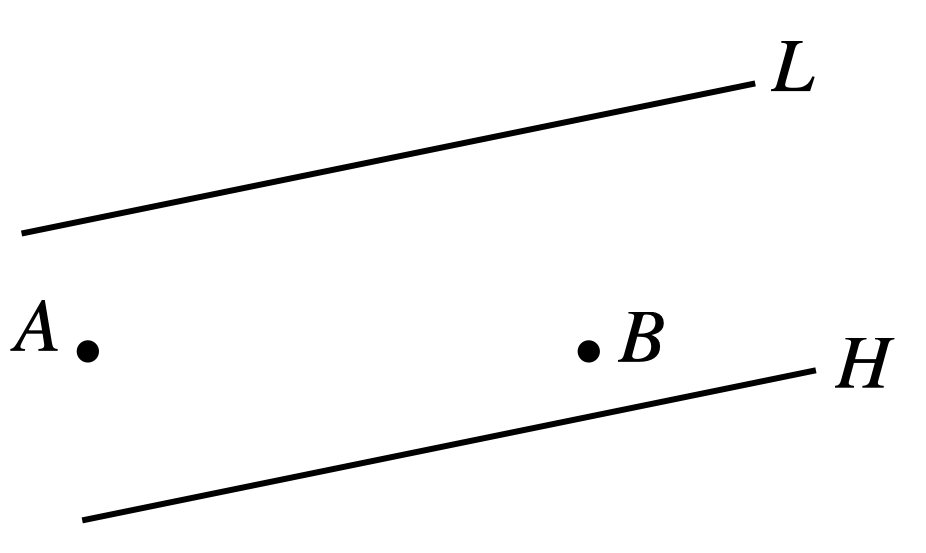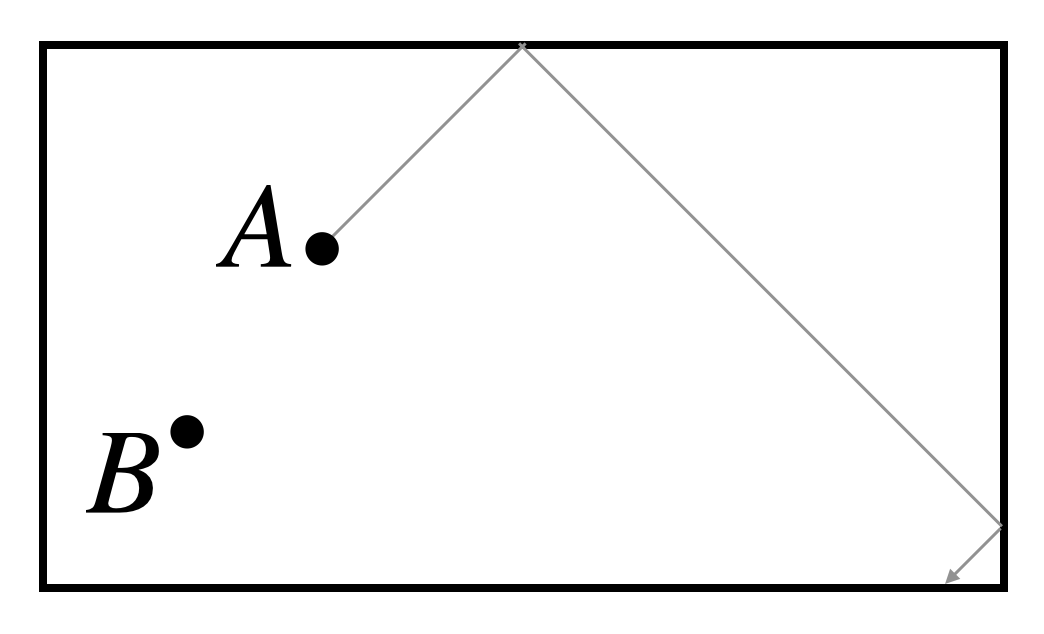Problems
Two ants, Muffy and Chip, start on opposite sides of a circle. Muffy moves twice as fast as Chip, and both can only move along the circle’s edge. Where could a breadcrumb be placed so that they both reach it at the same time?
Two points, \(A\) and \(B\), lie between two lines \(L\) and \(H\). Draw the shortest path from \(A\) to \(B\) that touches \(L\), then \(H\), and finally reaches \(B\).

Ignat is playing pool and places a ball at point \(A\), as shown below. Can he bounce ball \(A\) off a ball placed at position \(B\), if the ball can only bounce off the top and right edges of the pool table?
When a ball bounces off the edge, it does so just like light reflecting in a mirror: the angle at which it hits the edge is the same as the angle at which it bounces away.

A ball \(A\) is placed on the pool table as shown below. The walls are labeled as follows: wall \(1\) is the top wall, wall \(2\) is the right wall, wall \(3\) is the bottom wall, and wall \(4\) is the left wall.
If we hit the ball so that it bounces off the walls labeled \(1\), \(2\), \(3\), and \(4\) —in that order—and then stops rolling just before hitting the next wall, what region of the pool table can the ball reach? If the ball hits a corner, it also stops.
A point \(A\) is placed on the bottom edge of a cylinder, along the rim of the lower circle. Another point \(B\) is placed on the top circle, but opposite to opposite to \(A\), so that \(A\) and \(B\) are as far away as possible from each other.
Find the shortest path along the curved surface of the cylinder that goes from \(A\) to \(B\).
There are some coins in a straight line, all showing heads. You can choose any coin to flip. When you flip one, your friend must flip the coins directly next to it (the ones on its left and right, if there are any). For example: if you flip the first coin, your friend only flips the second coin, and if you flip the second coin, your friend flips the first and third coins.
The question is: no matter how many coins there are, can we always make all of them show tails in the end?
The product of two positive numbers \(a\) and \(b\) is greater than \(100\). Prove that at least one of the numbers is greater than \(10\).
Write the contrapositive of the statement “If it is sunny outside, then I put on sunscreen and wear sunglasses”
What is the contrapositive of the statement: “If the temperature is above \(40^\circ\)C or below \(-10^\circ\)C, then it is not safe to go outside."
Some lines are drawn on a large sheet of paper so that all of them meet at one point. Show that if there are at least \(10\) lines, then there must be two lines whose angle between them is at most \(18^\circ\).